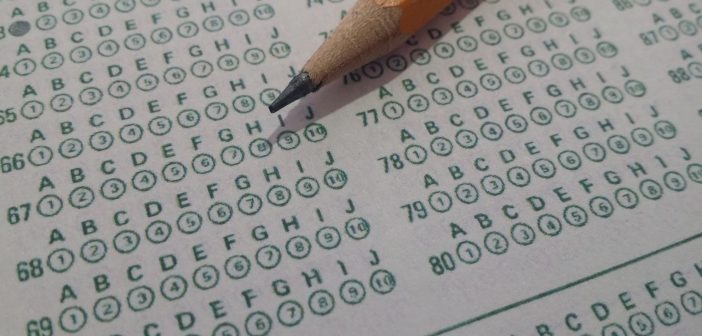High school students across China spent months preparing for early May, the time when they were scheduled to take their Advanced Placement (AP) exams. That’s why the AP College Board’s announcement on May 6th hit hard – that AP test centers in at least nine cities are to remain closed due to COVID-19 restrictions.
In late April, students received notice from their testing centers or schools that the AP exams that were to take place the following week were postponed, but by last week the College Board made their decision. According to their website: “Unfortunately, widespread covid restrictions will prevent some locations from testing in May, and we are not able to provide makeup options beyond May given the scale and uncertainty of the situation in China.”
AP classes are not part of every international or local school’s curriculum, but they affect many students in Beijing, particularly those who want to study abroad.
AP 101: How the exams are administered
AP tests are historically taken in person, with pen and paper. and heavily proctored to avoid cheating of any kind. They are only available once a year and must occur between May 2-6 and May 9-13, depending on the subject areas of the test. Students are required by the AP College Board to sit at least five feet apart for security reasons (four feet for some exam subjects), and clear partitions can be used only if they don’t prevent students from staying visible to the proctor at all times during the exam.
Students in China can register for the tests in two ways: at international schools authorized by the AP College Board (typically only open to students enrolled in those schools), and students who are enrolled in local public or private Chinese schools can register through the company Prometric as of the 2021-2022 school year. These students had planned to take their exams at the approved test centers.
In 2020, to prevent more disruption of courses and college admissions, the AP College Board had shifted their exams online, with even more stringent security protocols. Many students in China were able to take their tests as scheduled and in person last year thanks to low infection numbers.

Why AP exams are important
AP exam scores can play a key factor in a student’s college admissions process, especially in recent years as the SAT or ACT exams became optional for many universities and competition among applicants rose significantly among top-tier universities in the United States. AP classes are considered college and university-level curricula, so a good grade proves to a prospective college that you can handle the coursework. They are scored between 1-5, and a four or five on an AP test often counts as college credit, allowing a student to skip introductory courses. This way students may save money by not having to take the subjects again and enroll in advanced courses sooner.
Meredith Tung, a junior at AISB-Hope International, has taken a number of AP courses. Tung sees her AP scores as critical to staying competitive with other future graduates. “The university I am aiming for requires three AP scores, AP Calculus BC (compulsory) and two others of choice.”
Sophomore Helen Wang attends Beijing City International School (BCIS) and has taken AP World History, both Modern and Ancient. Wang’s wish is to study English literature and communications after high school, which she says “requires a strong historical background, plus writing, and analysis skills.” While her AP courses were more of a strategic move to gain a deeper understanding of her desired major, Wang admits it was “a huge surprise” that she is now not able to take the tests.
“To solve this issue I plan on submitting my course grade and prediction [of my score]in the university application.” Wang hopes she’ll be able to prove to a college admissions officer that taking the AP courses was well worth it, even without the scores this year to prove it.

The test must go on
Tung was one of the few lucky students whose school continued with their AP exam plan, even with the recent closures. “After school went online, our guidance counselor informed us they are working out a solution. Shortly after, we were notified that we [were]allowed on campus for exam administration.”
AISB-Hope continued its safety procedures for the in-person testing, such as showing a negative COVID test result within 48 hours of each exam, wearing masks, and snacks could only be unopened before entering or in a clear plastic container. AISB-Hope’s situation appears to be a rare exception, however, as the majority of international and local AP students in Beijing are now left without a means to take their exams.
For some students, their AP exams are more than just another grade. It represents the culmination of a school year’s worth of work, giving students a sense of closure before heading into the next year. Wang remains positive, understanding how her long-term goals aren’t affected but “the short term prize of a perfect score is a fortuitous cherry on top.”
KEEP READING: With E-Learning Comes E-xercise! Online Workouts To Stay In Shape
Images: Canva




